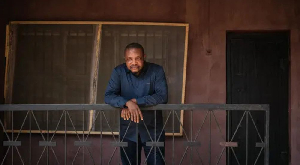Foreign investors did not find any worthy projects to explore in 27 states within the first nine months of 2023, data by the National Bureau of Statistics (NBS) have suggested.
This comes as the value of capital importation into Nigeria fell by 34 per cent to $2.82 billion in the first nine months of 2023 from $4.27 billion that was recorded within the period in 2022.
In its capital importation report for the third quarter (Q3) of 2023, the NBS reported that in total, foreign investors snubbed 27 states.
The report noted that Nigeria’s capital imports for the first nine months of 2023, comprising Q1 – Q3 totalled $2.82 billion, with $1.13 billion imported in Q1, $1.03 billion in Q2 and $654.65 million in Q3 2023.
However, there was a silver lining in the damning report as Abia remarkably attracted a whopping $150.09 million in Q3, thereby emerging as the only state that recorded a huge turnaround within three months.
Comparatively, the number of states that did not record investments dropped from 28 states in the first half of 2023 to 27 in the first nine months with Abia coming off the unenviable group.
The report said Lagos emerged as the most attractive space to foreign investors with $1.79 billion which represents 64 per cent of the total foreign investment inflow.
According to the NBS report, FCT emerged as the second top investment destination with $799.21 million representing 28 percent of the total capital inflow in the country in the first nine months of the year.
Apart from Abia, FCT and Lagos, Akwa Ibom attracted $39.13 million; $27.09 million was staked in Ogun while foreign businesses invested $4.5 million in Adamawa.
According to the NBS report, the 27 states that failed to attract foreign investment of any kind in the first nine months of 2023 are Bauchi, Bayelsa, Benue, Borno, Cross River, Delta, Ebonyi, Edo, Enugu, Gombe, Imo, Jigawa, Kaduna, Kano, Katsina, Kebbi and Kogi. Others are Kwara, Nasarawa, Osun, Oyo, Plateau, Rivers, Sokoto, Taraba, Yobe and Zamfara.
Capital importation provides access to external sources of financing and investment thus helping to fund infrastructure projects, improve productivity, and stimulate economic growth.
Capital importation is said to be important for stimulating economic growth, facilitating technology transfer, accessing new markets, increasing foreign exchange inflows, creating jobs, reducing poverty, and promoting infrastructure and social development.
It is also a key driver of economic development and is often sought after by countries to support their growth and development objectives.
Business News of Monday, 1 January 2024
Source: guardian.ng













